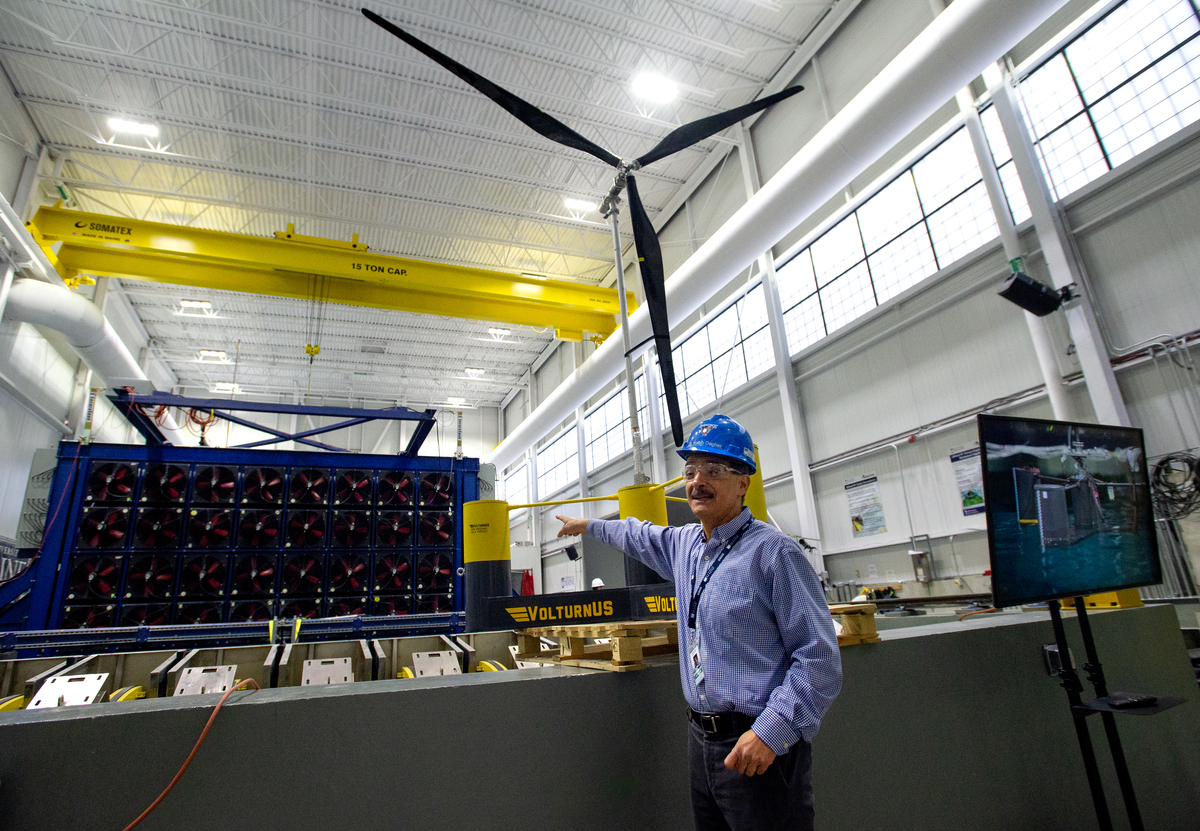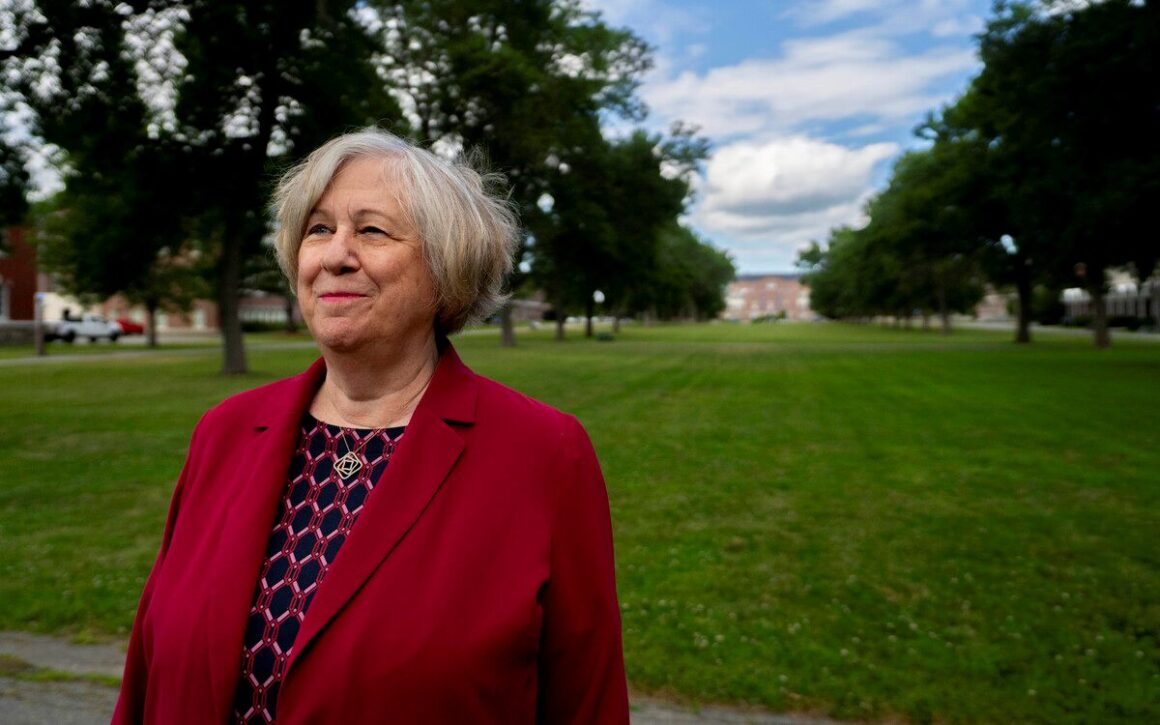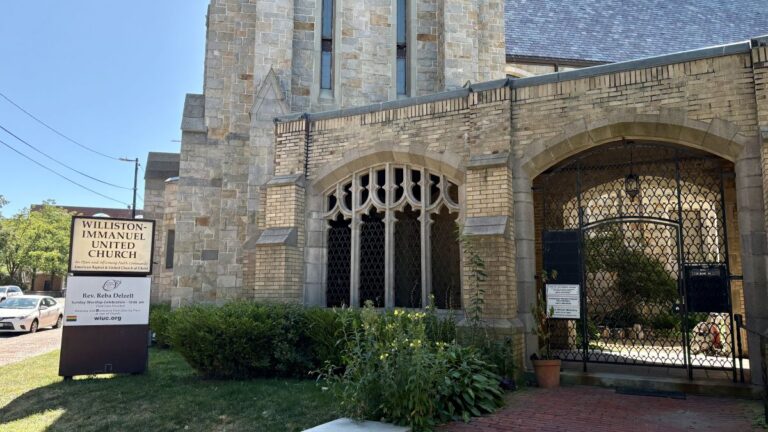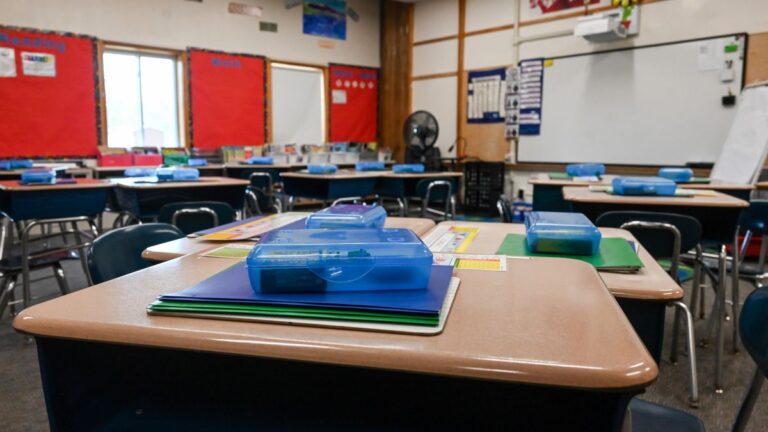On the morning of Friday, March 14, a University of Maine accountant made a troubling discovery: she was unable to access the money that funded a residential program for rural high school girls interested in science careers.
It came at the end of a tumultuous week between the university and the U.S. Department of Agriculture. That Monday, the USDA said it would cut all funding to public universities here as President Donald Trump ramped up a pressure campaign against Maine to change its policies allowing transgender girls in girls’ sports. Two days later, the USDA reversed that decision.
In the headlines, the university system and the agriculture department seemed like adversaries in a political drama. But for decades, they have quietly collaborated on scientific and rural economic development projects that are predominantly based at UMaine with regional reach.
So when the accountant learned that the agency had now paused the science education grant, she sent a polite but concerned email to USDA officials asking why, according to an email exchange obtained by the Bangor Daily News through a public records request.
When she did not receive a clear answer, she and her colleagues privately discussed how to manage the program while funding was frozen, records show. At one point, they wondered whether the pause had anything to do with the grant description in the USDA’s payment system: “Women and minorities in STEM.”
The exchange is a window into the confusion that has transformed life in Maine’s public university system. The Republican president’s administration has cut research grants across the country and in a targeted fashion against Maine. Over the past six months, UMaine and its sister schools saw grants paused, terminated and in many cases restored often without clear explanations.
In an interview, Joan Ferrini-Mundy, the Orono university’s president and vice chancellor for research and innovation for the university system, compared the disruption to the early days of the COVID-19 pandemic. UMaine has responded in a similar way: task forces and trying to make composed decisions that will best serve students and faculty, she said.
As an example, Maine’s universities did not draw attention to the scale of cuts they faced for much of the spring. That was until late May, when the system circulated a document detailing how the federal government had held up close to $50 million.
Some members of the UMaine community would prefer leaders to express more outrage about the cuts it faced, Ferrini-Mundy said. Others have cautioned a quieter approach to pushing back. She has tried to thread the needle between being transparent and keeping UMaine out of conflict that would endanger its long-term standing as the state’s research hub.
“We … want to keep students coming and not have the big story be, ‘What’s happening?’” she said. “It’s nothing like what’s happening at a Harvard or Columbia” — referring to the Ivy League schools heavily targeted by the administration — “and we don’t want to be pulled into that.”
Soon after Trump took office, Ferrini-Mundy convened the system’s Federal Action Stakeholder Task Force, a group of officials from different schools who meet three times a week to discuss shifts in federal policy, international student matters and internal communication, she said.
They discuss updates from another group, the Grant Review Task Force, set up to track the status of every federal grant affected by funding freezes. Often, its members are forced to plan with limited information, either because they were unsure if a terminated grant might be restored or because the federal government did not always provide a clear explanation.
Maine’s congressional delegation often tries to get answers. UMaine officials provide their offices with updates about money and the impact freezes are having, and the politicians and their staff leverage their relationships in Washington. It often begins with trying to figure out whether a grant is paused everywhere or just in Maine.
“It has been a daily event that we are trying to track down some level of funding,” U.S. Rep. Chellie Pingree, a Democrat from Maine’s 1st District, said.
If it’s just Maine, Pingree said her staff usually begins by drafting a letter to the relevant agency. Sometimes, it makes better sense to collaborate with lawmakers from other states on nationwide programs. But the federal government doesn’t always provide a clear reason for its actions or grant an audience to hear an appeal.
The BDN reviewed dozens of emails between the USDA and UMaine showing how the agency paused eight awards this spring without citing a clear reason, prompting a string of follow-up emails from university officials that yielded only vague answers.
“As we await further guidance, we are asked to pause issuance of grant funding during the transition of government,” a grants management specialist for the agency wrote back on March 20 to the accountant who had inquired about the science education funding.
Over the next two months, UMaine’s top research administrators followed up with requests for clarity and guidance: Should the university proceed with its work? If work continues, would the university be reimbursed? Questions were forwarded to upper management, the agency replied.
Until this point, university officials had yet to refer to the more heated, public conflict that had played out between Maine and the USDA. But on May 21, Christopher Boynton, UMaine’s director of research administration, wrote a long email summarizing how the agency had yet to succeed in its more public efforts to penalize Maine’s funding.
In mid-March, the USDA had cleared the university system of any alleged violations of Title IX, the federal anti-discrimination law that the Trump administration cited as a reason to investigate and withhold funding from Maine over its transgender athlete policies. (Maine’s public university system has no known transgender athletes.) A federal judge had also ordered the agency to return federal nutrition dollars that it had cut to the state government.
In early June, the USDA restored funding to one of the eight grants it had paused, allowing UMaine to restart a program that helps farmers, loggers and fishermen with disabilities stay in their jobs. The decision came after the stalled program received press coverage, including a BDN story about how an oyster farmer in Port Clyde faced going out of business, and intervention from U.S. Sen. Susan Collins, the Maine delegation’s only Republican.
On July 1, the agency resumed funding to the remaining seven grants it had paused to UMaine, as well as three other awards for which UMaine was a subgrantee for another university. Again, the university credited help from Collins. The agency never provided an official explanation for the pause.
“Several awards across USDA, including some to the University of Maine, were suspended at the beginning of the transition to ensure alignment with priorities of the Administration,” a USDA spokesperson said this week in response to a request for comment. “Awards were either unfrozen or terminated after completion of a thorough review.”
Now that funding has resumed, UMaine has restarted programs related to aquaculture, rural economic development, and research into making sustainable jet fuel and fish food from biomass, said Samantha Warren, the university system spokesperson.
But the system had to cancel this summer’s multi-day residential program for high schoolers interested in STEM because the funding was inaccessible during when the school typically recruits students to participate, Warren said. The university also laid off a coordinator providing technical support to more than 80 farmers in the Northeast and Midwest but plans to rehire.
“Disruptions to the federal funding that the [university] system and students rely on harms our communities and heritage industries and delays the progress created by these programs,” Collins, the top Senate appropriator, said in a statement. “I will continue to advocate for the important mission of UMaine and the entire system.”

As of this month, the federal government has restored 62 awards to the university system, more than $25 million of which remained unspent, while another 25 grants, nearly $6.5 million of which remained unspent, had been terminated or paused, Warren said.
The speed of terminations and pauses has slowed. The federal government had not paused any grants to the university system since late May, with one exception. Last week, the Department of Homeland Security ended a grant related to assessing campus threats that the University of Southern Maine had applied for after the 2023 mass shooting in Lewiston, Warren said.
The university has seen new grants come in, Ferrini-Mundy said. She is encouraging staff to pursue funding proposals for research aligned with the new administration’s priorities, such as artificial intelligence and nuclear energy. The federal government has not explained its abrupt decisions, and there was little value in speculating about why, the president said.
“I think we are never really going to know [why freezes happened],” she said. “The real key is that it was turned around, so we have the chance to do good work as we always do.”







